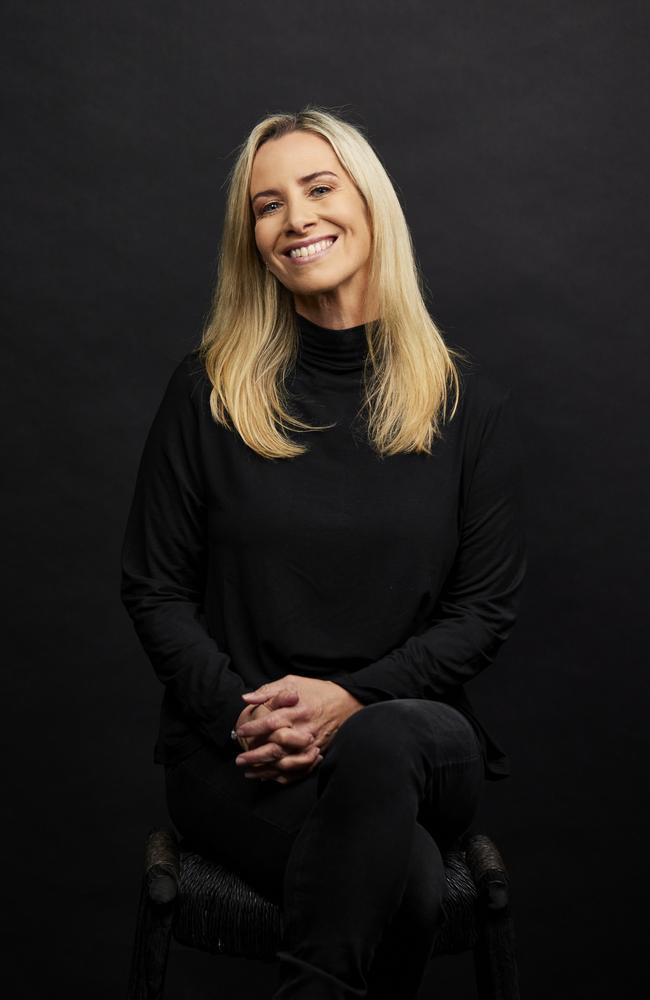‘Committed relationships are difficult’: Couples therapist reveals key to happy union
Psychotherapist Lissy Abrahams has helped hundreds of couples break the cycle of conflict and rekindle their love. She shares her advice on how to save a failing relationship.

Lifestyle
Don't miss out on the headlines from Lifestyle. Followed categories will be added to My News.
I was recently on a train and overheard a young woman on the phone. As I listened to her describe some upsetting experiences with her partner, I detected a wobble in her voice. It was a wobble of distress. I could hear she was really struggling.
Here’s what she conveyed.
They live together. She tries hard to communicate with him but he disengages, often fobbing her off by insisting that “everything’s fine”. She’s lonely and worries he’s just not into her anymore. She can become furious with him, but fears he’ll end the relationship. She has no idea what to do.
I know that wobble in her voice. I know the feeling of holding back the floodgates of distress. I’ve heard it in my own voice, and from the hundreds of clients I’ve worked with over the years. You probably know it too. It’s the wobble that reveals you’re not quite holding it all together in your relationship anymore.

Being in a relationship with ongoing cycles of couple conflict is soul destroying and exhausting. We can become trapped in these cycles.
The reality is that committed relationships are difficult.
We’re expected to take care of ourselves, our partner and our relationship. We’re also expected to have careers, raise children, run a household, be sexually intimate, form sustainable friendships and support our extended families.
And this is all supposed to happen happily over many decades. It’s not easy to achieve or maintain, and it’s normal for us to experience conflict as we navigate these challenges with our partner over time.
Here’s a fact: We never get used to conflict.
Fights often erupt suddenly and disturb our internal stability. Our mind and body alter instinctively as we experience our partner as a threat and are thrust into the role of competitors instead of allies.
When we’re able to calm, even a little, we can feel some dread, anxiety or sadness, and it’s not always easy to shake off these feelings. It can take time to feel we’ve properly recovered from an episode. However, the problem is that there’s never just one episode.

For many of us, conflict can be ongoing for several years, and we can experience literally hundreds of episodes. And even though we try to resolve the conflict, there is often only temporary relief. It always feels bad.
Couple conflict can affect almost every aspect of our lives, including our emotional and physical wellbeing. These repeated fights leave a mark on our relationship, and over time alter our feelings towards our partner. If we have children, they can also be negatively impacted.
Sadly, for many of us, repeated and unresolved conflict ends with the gruelling process of separation as we come to feel there’s no other option but to walk away.
Tragically, the conflict often continues despite being separated, because the separation hasn’t resolved the problem of why we really fight.
Every day, I see the devastating impact that cycles of conflict have on couple relationships. This can bring feelings of sadness, despair, anxiety, loneliness and even fear, which all contribute to a diminished sense of safety with our partner.
Over time, when our safety is continually questioned, trust and intimacy typically break down. And that puts us and our relationship into distress.

When is conflict a problem?
Would you say the conflict is a problem for the young woman on the train?
I’d say for sure, and here’s why. She now lives with distress. She’s unable to engage her partner and can’t resolve issues with him. She’s increasingly anxious and overwhelmed in this relationship, and believes her needs are ignored and dismissed by him. She becomes furious with him, then worries that her behaviour makes things worse. She experiences his dismissals as a deep rejection of her. She’s worried he’s losing interest in her and, even worse, is fearful he’ll leave her.
Abandonment is a primitive fear linked to our survival. This becomes a threat for her, which will alter her behaviour towards him.
She may become more needy or clingy; may secretly check his mobile or question his whereabouts. She may retreat from him, becoming more distant.
Her thoughts and behaviours will become centralised around her fear and anxiety.
What if they continue like this for another two months, a year, or three years? What if the young woman convinces herself and her partner that if they were married everything would be different? Would the Band-Aid marriage really make her more secure? It would be an interesting distraction – for a little while. But for how long?
This young woman feels what many partners in conflictual relationships feel – unsafe. They end up perceiving their partner as a threat or danger.
I see this all the time with my clients. Perhaps you can see this in your relationship, too. When the conflict continues over many years, it will certainly change how you feel about your partner and how you treat them.
No one wants to be close to someone they find scary or unpredictable. In fact, we’re biologically wired to fight back or to run away from them.

Why do we perceive our partner as a threat?
Whenever we feel suddenly afraid, shocked or overwhelmed in an interaction with our partner, we will perceive them as a threat, and our amygdalae will kick off the fight or flight response.
Because we can’t tolerate these feelings, we see our partner as an actual threat, and the physiological reactions that prepare us for survival are activated.
We either become physically and emotionally mobilised to take our partner on as an opponent or we take flight.
Fight mode
We can fight our partner with behaviours including blame, bullying, violence, screaming, mocking and many others. We can speak or behave in ways we would never deem acceptable under other circumstances or with other people. These reactions only serve to inflame the situation, heightening our emotional state.
Many of us justify our harsh or over-the-top behaviour in fight mode, claiming our partner “made us” act in a particular way. We often don’t see our behaviour as out of line, nor do we take responsibility for it.
Flight mode
We can take flight by avoiding our partner. We may escape to another room, or even stay at a hotel overnight. Flight also shows itself when we become withdrawn in our partner’s presence or avoid them by staying late at work.
We may also use flight to avoid our feelings, resorting to self-destructive behaviours like excessive drinking, gambling, binge eating or self-harm. Flight can also be seen when we become passive or compliant in order to move away from our distress or soften the atmosphere with our partner.
Fight or flight reactions will keep us trapped in fearful or distressing conflict. They will always add fuel to the fire, and ultimately take us further away from resolving our couple conflict. Eventually, they’ll harm our relationship. The real problem is that we never learn that the difficulty resides in us – that we haven’t learnt to manage these feelings.

Stress affects our mental and physical health
Prolonged couple conflict can often cause long-term emotional and physical issues. The fight or flight responses we experience during conflict become woven into our relationship. This alters how we think about our partner and leads us to create anxious or upsetting emotional narratives or stories that reflect how we feel about them and our relationship. These narratives are connected to our ego.
We can’t remove our thoughts about ourselves, our partner or our relationship from a fight. The ego-driven internal narrative can take us to places that cause us great stress, and even distress.
Over time, with repeated cycles of conflict, our emotional and physical wellbeing will likely be compromised.
Each episode of conflict with our partner leaves us with a stress-related hangover, which can impact us physically, emotionally and behaviourally.
This aspect of conflict is serious, especially given that it takes couples on average six years of unhappiness before they contact a therapist for help. Simply put, that’s exposing both partners to serious long-term stress and distress.
More Coverage
Originally published as ‘Committed relationships are difficult’: Couples therapist reveals key to happy union




